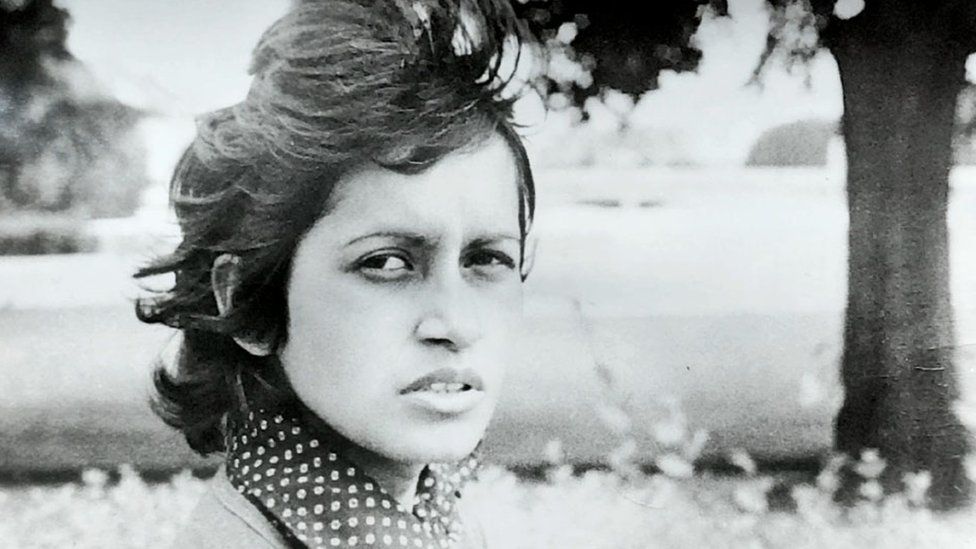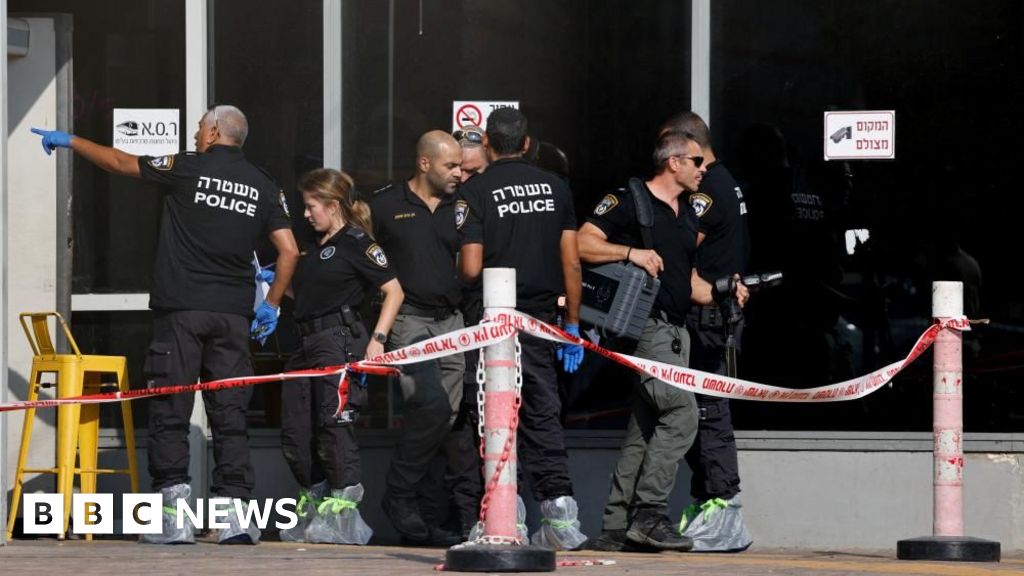ARTICLE AD BOX
 Image source, Van Dunem family
Image source, Van Dunem family
Sita Valles, the mother of João Ernesto Van Dunem, was one of those who was killed in the 1977 massacre
By Mary Harper
Africa editor, BBC World Service News
Decades of silence and fear followed the 1977 massacre of perhaps as many as 90,000 people in Angola, but as the families of the disappeared started to speak out, demanding answers, the government took action in an attempt to promote reconciliation. Though in some cases its attempts appear to have gone cruelly wrong.
For João Ernesto van Dunem it was like his parents had been killed for a second time.
First, hopes were raised for the man who was orphaned when he was three months' old.
Angola's justice minister appeared on national television last year to announce that the remains of his mother and father had been found after 45 years, along with those of other people.
"I thought maybe finally I would have my parents back," he tells the BBC. Sita Valles and José Van Dunem were two of the leaders of an uprising in 1977.
They were young members of the MPLA government disaffected by what they saw as the venality of their colleagues. What exactly happened that May is still a source of controversy.
The exhumation of the bones of those who had been dumped in mass graves was supposed to be part of a process of official reckoning.
But Mr Van Dunem's hopes for answers have since been crushed.
After an official investigation identified the remains, a separate independent team of forensic anthropologists said the bodies were in fact not connected to him.
"I asked myself whether the Angolan authorities were trying to retraumatise my family? Was it intentional? How could they do this to us after all these years of pain?" asks Mr Van Dunem, an economist currently based in Lisbon.
In 2018, he and other orphans of the massacre set up an association, M27, demanding the truth about what happened, the recovery of their parents' remains and the issuing of death certificates
A year later, the Angolan government broke its silence.
President João Lourenço established a commission to investigate acts of political violence since independence in 1975, including the events of 1977 and the 27-year war with Unita rebels which ended in 2002.
On 26 May 2021, Mr Lourenço issued a public apology for the massacre and asked for forgiveness for what he described as "the great evil".
Image source, Van Dunem family
Image caption,José Van Dunem was one of those who objected to what some in the MPLA leadership were doing
Bulldozers started digging up bodies and a Brazilian geographer was flown in to identify them.
The orphans were horrified when footage of the unearthing of skulls and other bones was shown on television.
They refused a request from the authorities to provide their DNA to help identify the remains, insisting on an independent inquiry.
Then, the government declared the remains had been found of four key figures in the uprising, including its main leader, Nito Alves. Their families accepted the bodies, which were buried in a state funeral on June 2022 attended by senior government officials, the coffins draped in shiny Angolan flags.
Shortly afterwards came the television announcement that the bones of Mr Van Dunem's parents, uncle and other leading figures in the events of 1977 had been found and would be returned to their relatives.
But none of the families agreed to take the government's word that the remains were genuine.
They hired a team of investigators led by renowned forensic scientist Prof Duarte Nuno Vieira of Portugal's Coimbra University. He has been involved in dozens of international missions, including in Colombia, Mexico and Bosnia-Herzegovina.
'Bones talk a lot'
Given the final outcome of their investigations, it is in many ways surprising the Angolan authorities let them in.
"Independence and transparency are the keystones of our work," says Prof Vieira.
"Families of the disappeared must be involved from the outset. Otherwise there is no trust. Unfortunately this was not the case in Angola."
Prof Vieira says he has never heard of the Brazilian employed by the government. None of his many colleagues in Brazil have heard of him either.
When his team arrived in Angola, they were taken to a room full of bags of jumbled up bones - these were the remains that the justice minister had referred to.
"Bones talk a lot," says the forensic scientist.
"Our job is to make bodies speak to us. The way they are lying when we find them tells us part of the story of what happened to them. If they are dug up with an excavator, like they were in Angola, a lot of information is lost."
Image source, Coelho family
Image caption,Rui Coelho never saw his son who was born three months after he disappeared
After the teams assembled the bones, they found that two of the bodies belonged to women.
They told Mr Van Dunem one of them could be his mother.
But when they tested the remains against the relatives' DNA, not a single one matched.
Two of the bodies were those of children. One had an amputation performed years before the person died. None of those named by the government were amputees.
The soil on the bones did not match the earth where the excavations took place.
Others faced similar devastation to Mr Van Dunem.
"When the authorities said they had found the remains of my father, our family was ecstatic," says Rui Tukayana, who now works as a journalist in Portugal.
"Some of my uncles posted on Facebook that finally we could bury with dignity the body of their brother. That finally our souls could be at peace."
Mr Tukayana never knew his father, Rui Coelho, because he was born three months after he was taken away.
"When the independent team found this was not his body, it was like we lost him for a second time," he says, echoing Mr Van Dunem's sentiments.
It is possible the remains of the disappeared will never be found.
Struggle for the truth
"We must not forget that at the time, it was common practice to drop bodies into the sea from planes," says Prof Vieira.
Mr Van Dunem says one of the reasons the truth is so hard to uncover is that some powerful people in Angola have a lot to hide.
"Some of the people involved in the killings are still alive, some with significant roles in Angolan politics today."
Image source, Rui Tukayana
Image caption,Rui Tukayana and other relatives of those who died will not give up in the search for family members
The authorities have been told about the independent experts' findings. So far they have said nothing. Efforts to contact them for the purposes of this article have been met with silence.
The M27 group of orphans has described the government's actions as an "exercise in cruelty".
They say they have been condemned to live as "children of shadows" who "know their parents only through old photographs, some so faded that it is impossible to see what they looked like".
They are currently discussing what to do next.
One thing is clear: they will not give up.
"The government's behaviour has made us more determined than ever," says Mr Van Dunem.
"I don't regret what we are doing, however painful it is. Tribute has to be paid to a whole generation of Angolans who paid the highest price for dreaming of a different country where everyone could have a place."

 1 year ago
23
1 year ago
23








 English (US)
English (US)